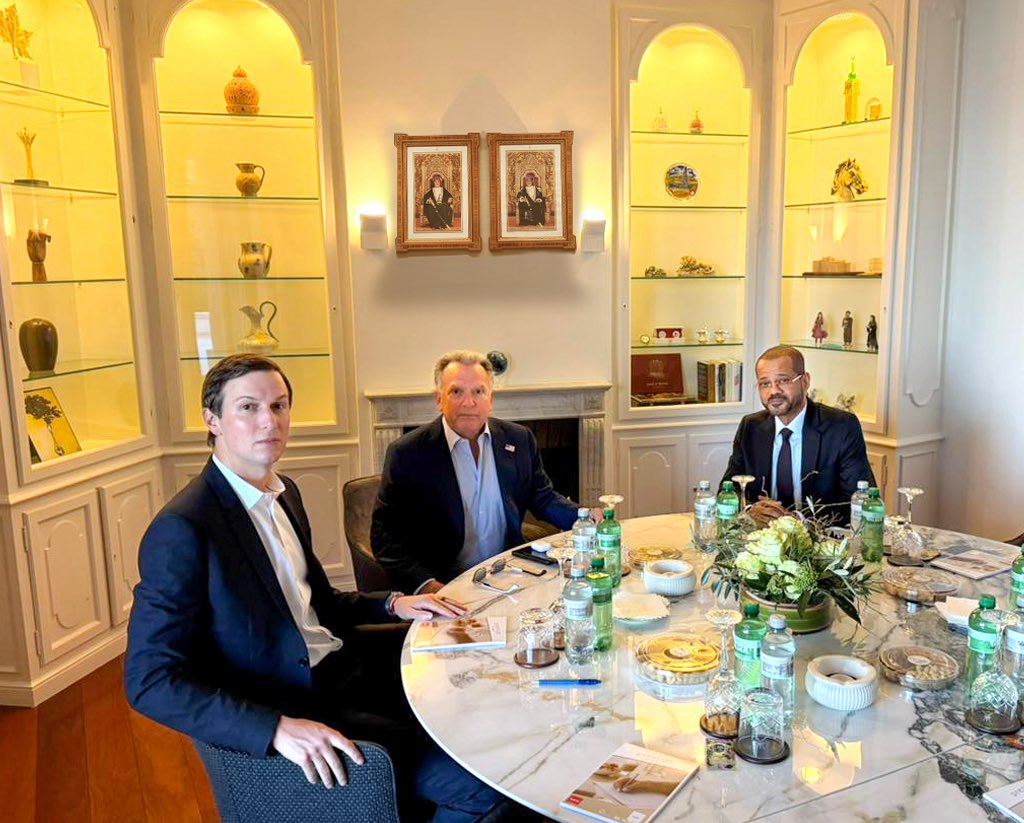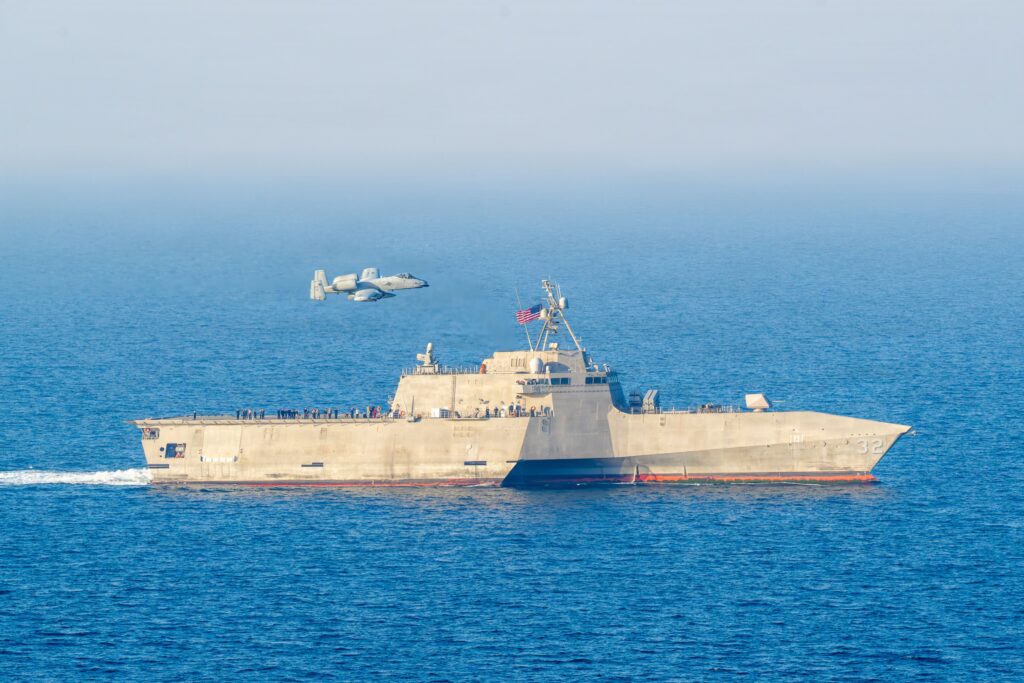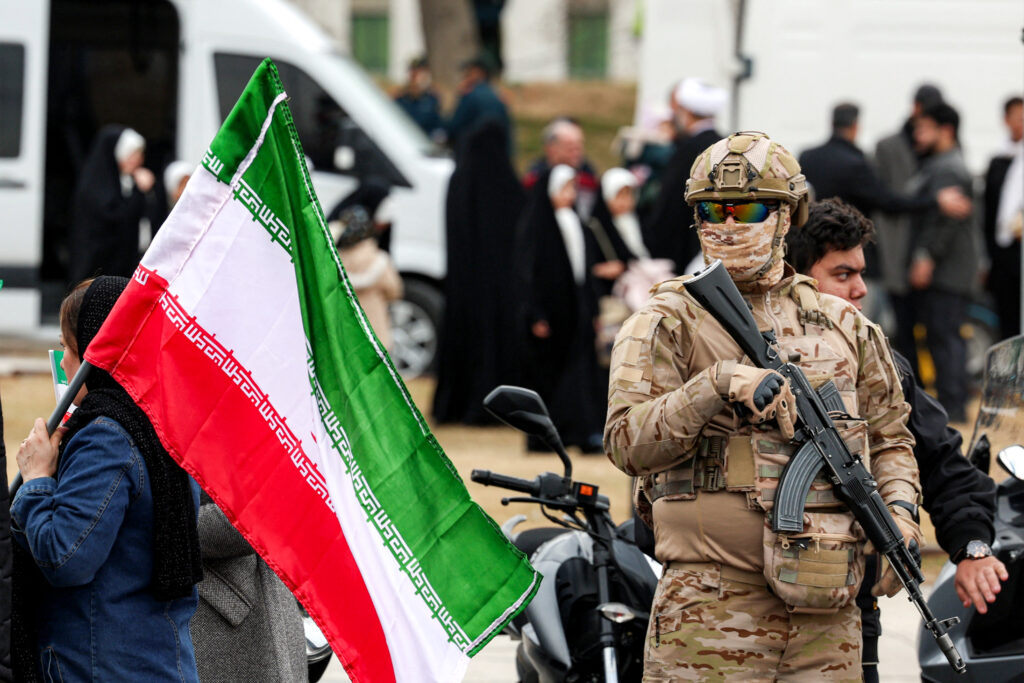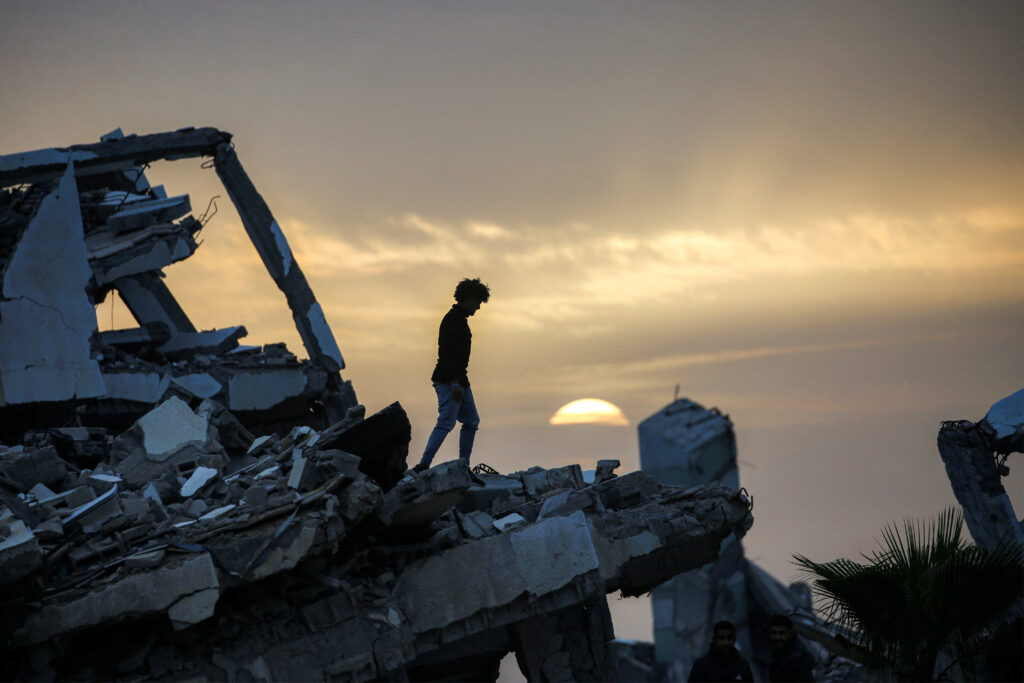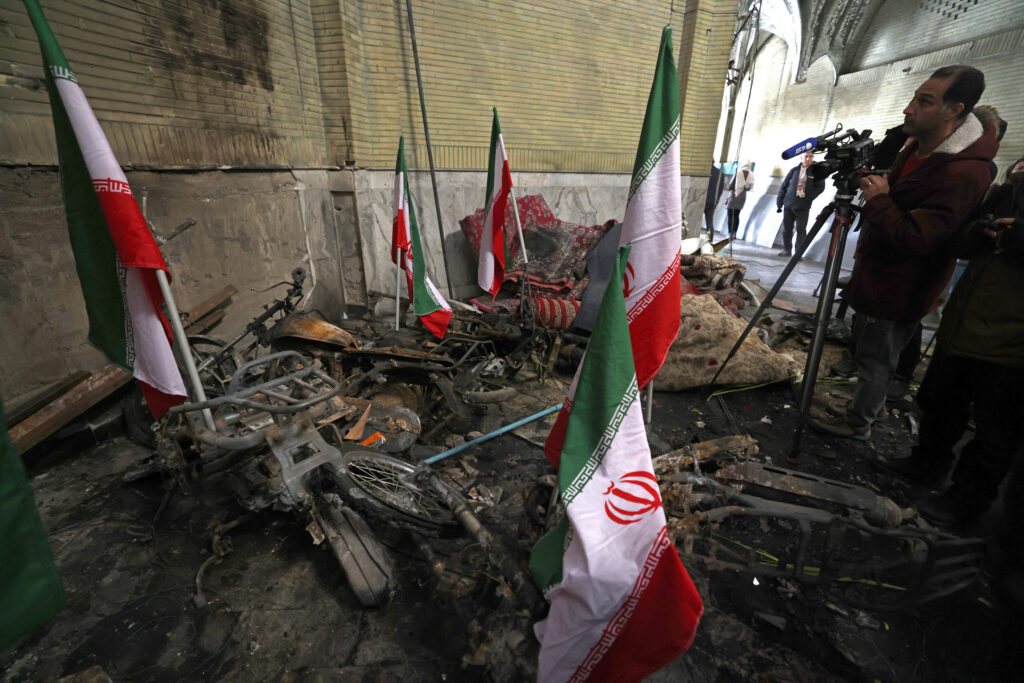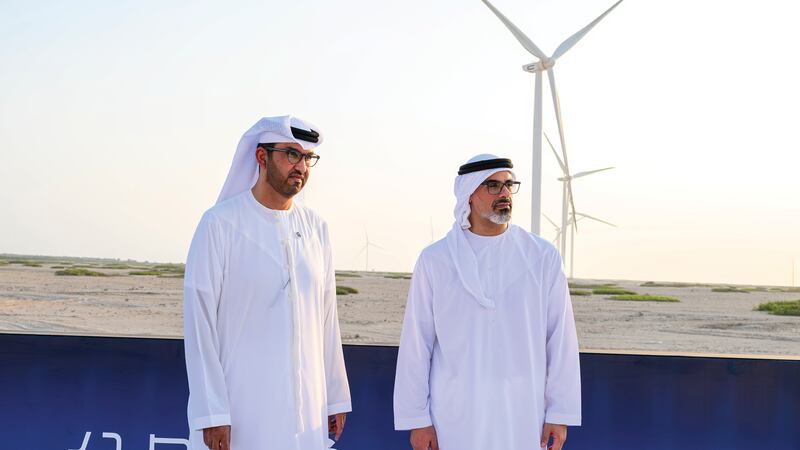
On the 15th of August, the Middle East Institute (MEI) and the Institute of South Asian Studies (ISAS) held a joint workshop to discuss the dynamics of ‘partition’ between India and Palestine after seventy years. Held in Singapore – the tropical nexus of Asia – the collaboration saw the participation of over 120 individuals, including academics, students, ambassadors and members of the public. The workshop was held at the Asia-Europe Foundation and was host to a diversity of speakers and chairs – professors from India, the UK, the US, Pakistan and Bangladesh – who converged to draw parallels between their respective political histories.
Click here to view photos and here to view the full video of the conference.

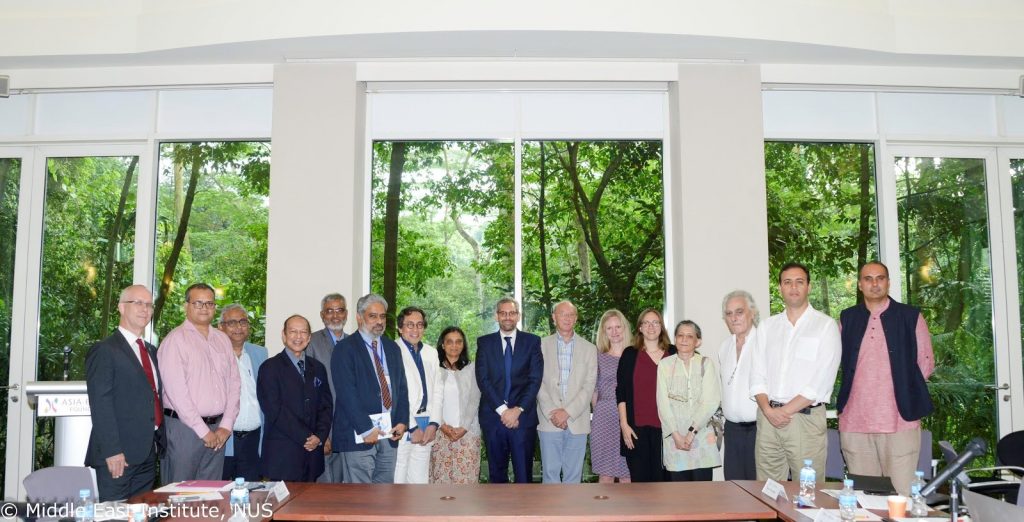
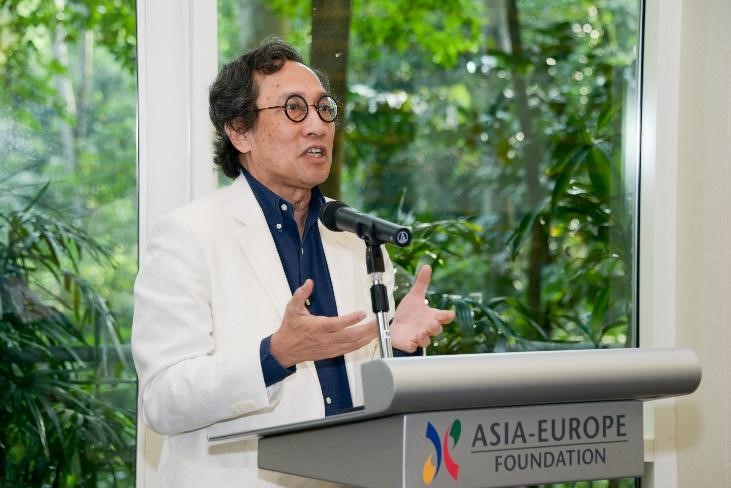
 (Victor Kattan, Senior Research Fellow, Middle East Institute)
(Victor Kattan, Senior Research Fellow, Middle East Institute)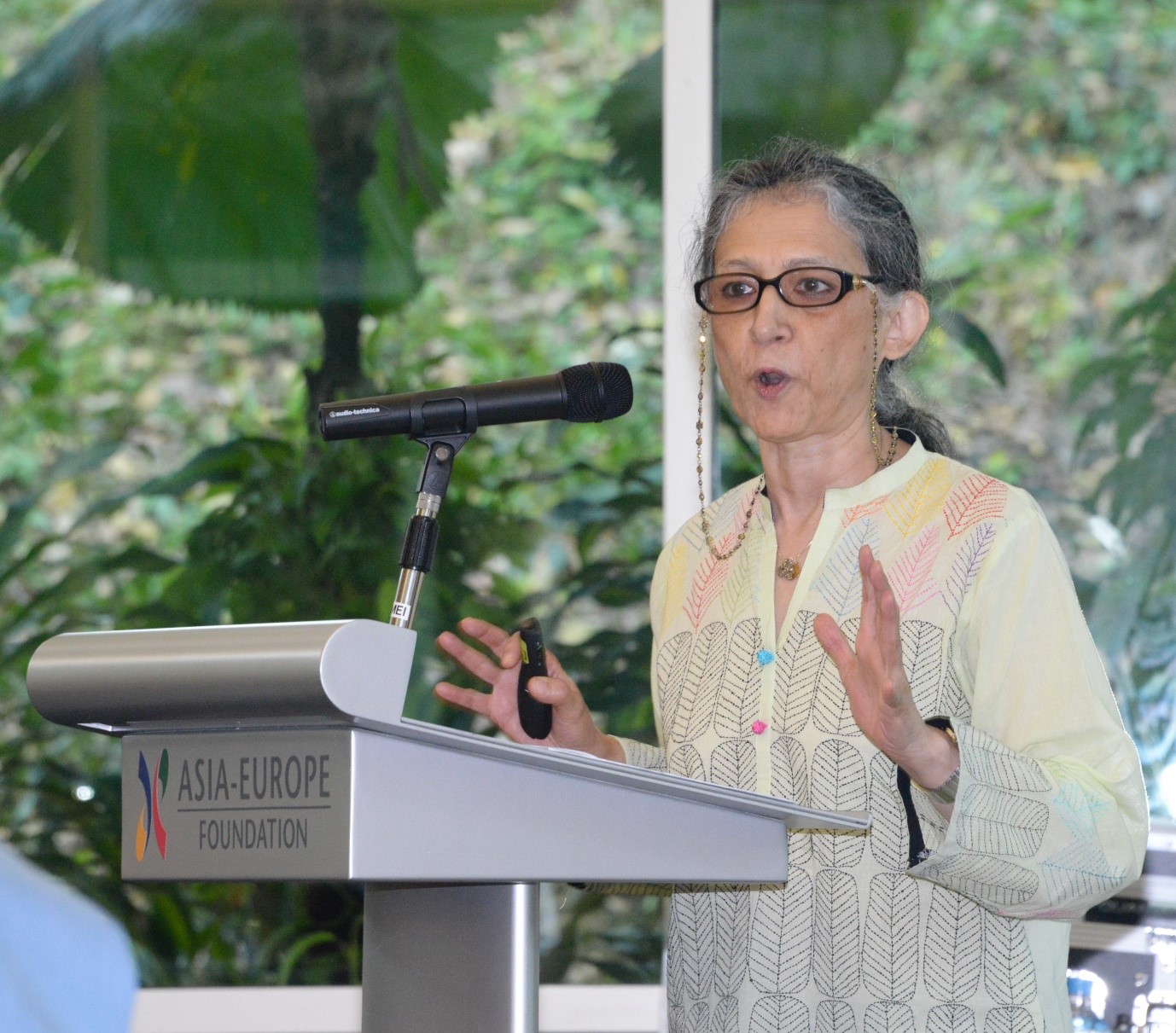 (Ayesha Jalal, Tufts University, United States)
(Ayesha Jalal, Tufts University, United States) (Penny Sinanoglou, Wake Forest University, United States)
(Penny Sinanoglou, Wake Forest University, United States) (Laura Robson, Portland State University, United States)
(Laura Robson, Portland State University, United States)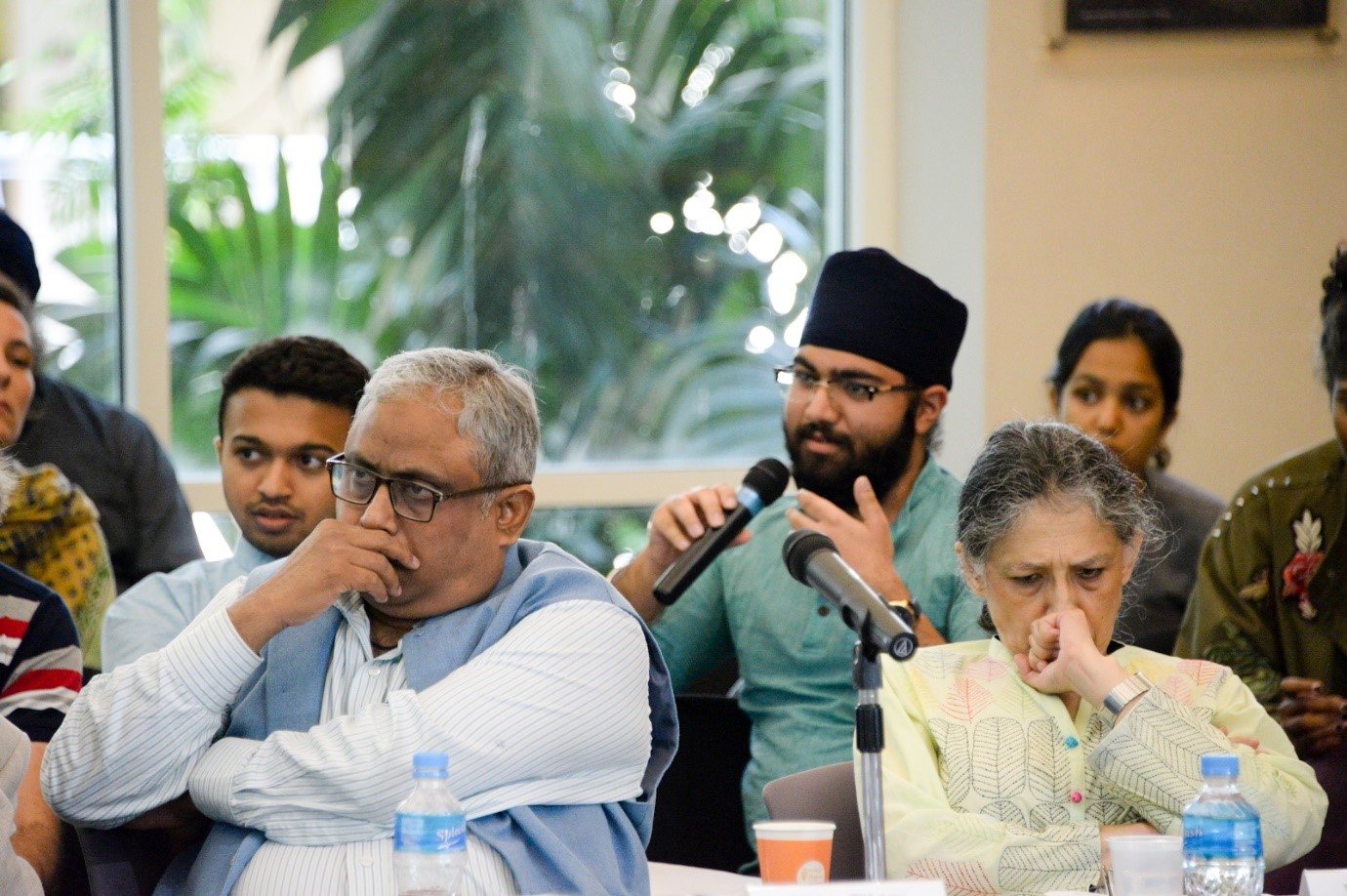 (Gyanesh Kudaisya and Ayesha Jalal during the Q & A Session)
(Gyanesh Kudaisya and Ayesha Jalal during the Q & A Session) (Mohamed-Ali Adraoui, Georgetown University, United States)
(Mohamed-Ali Adraoui, Georgetown University, United States)
